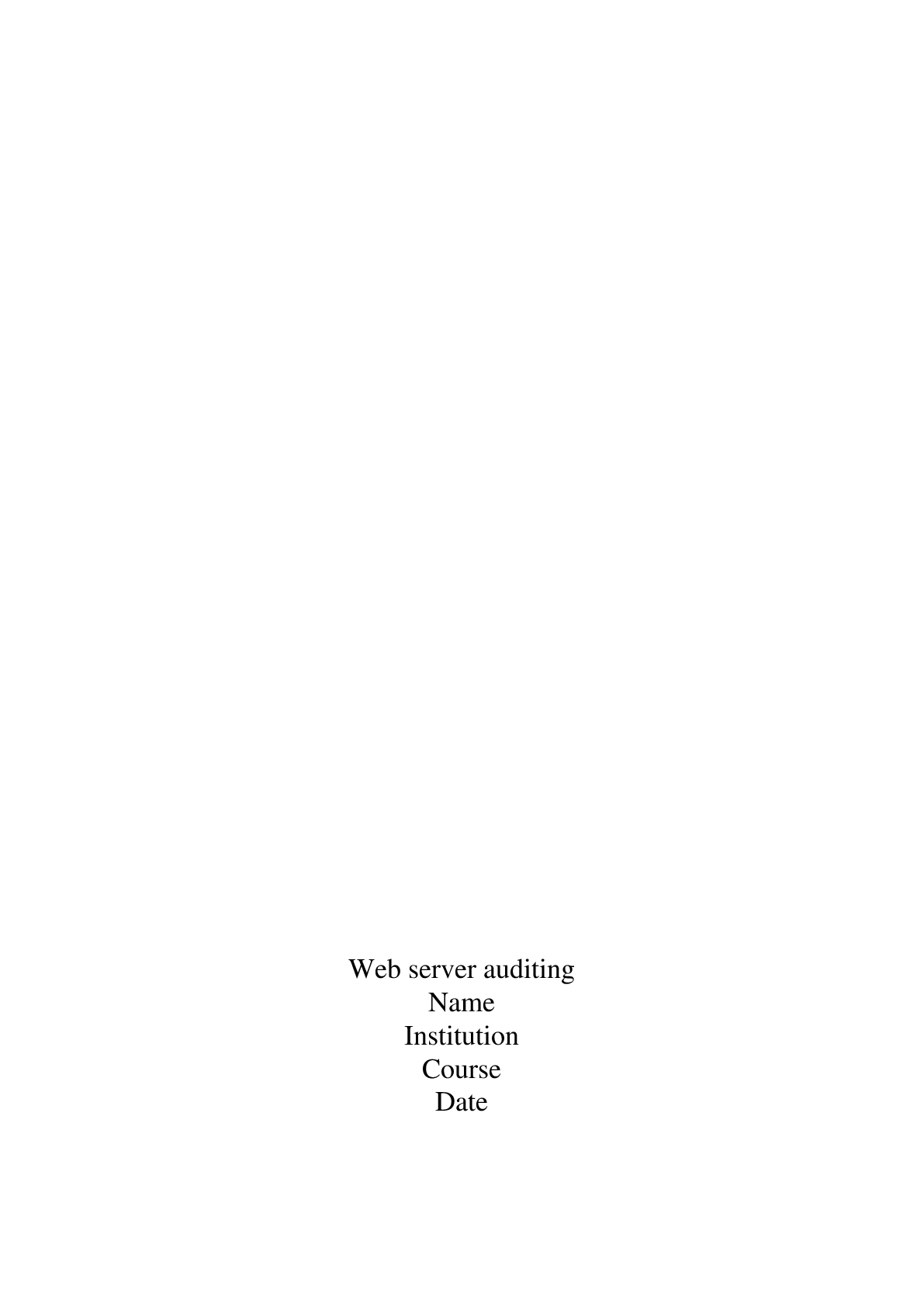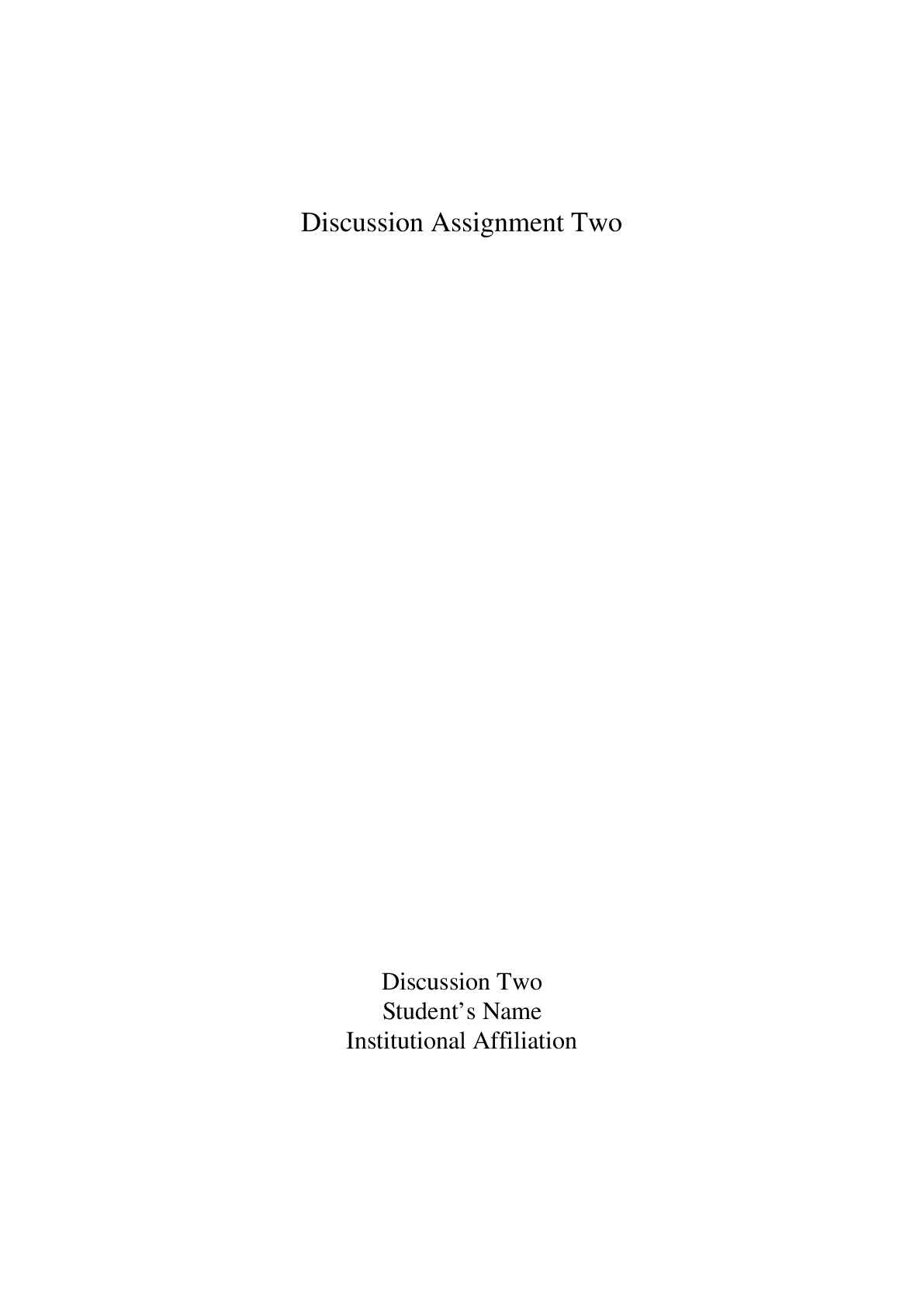Sociology > DISCUSSION POST > SOCS-325 Week 2 Discussion: Externalities (GRADED) (All)
SOCS-325 Week 2 Discussion: Externalities (GRADED)
Document Content and Description Below
SOCS-325 Week 2 Discussion: Externalities In Ch.3 Bakan takes up the economic idea of externalities (i.e. effects of transactions on third parties) and argues that the corporations’ tendency to... externalize costs is at the root of many of the world’s social and environmental problems. He presents interesting examples, of cost-benefit analysis in the car industry (ex. General Motors) where passengers’ safety is concerned, of sweatshop labor in the clothing industry, and, interestingly enough, of the disregard of maintenance and safety regulations in the petrol industry (focusing on BP, long before the recent environmental disaster). He argues that unlawfulness in the corporate activity is systemic, and results a) from the amoral character of the institution, and, b) from failure of the regulatory system, because of lax regulations and ineffective enforcement. Chapter 3 continues the pattern set in the first two: it reveals an important aspect of the corporation that is often not seen or understood, but then it provides an analysis that steers us away from grasping the nature of the problem. Here the issue is that “the corporation’s built-in compulsion to externalize its costs [that] is at the root of many of the world’s social and environmental ills” (61). ‘Externalities’ are all those costs that are accounted for indirectly in environmental degradation or in a debased standard of living; to put it another way, all those costs in production, transportation, usage, and disposal that are borne indirectly and unequally by everyone but for the benefit for those who own the means of production and distribution. Bakan makes the point clearly and forcefully over several pages. “A corporation,” he says, citing a businessman “ ‘tends to be more profitable to the extent it can make other people pay the bills for the impact on society’ ”(70). He continues: “the corporation…is deliberately programmed…to externalize costs without regard for the harm it may cause to people, communities, and the natural environment” (73). The point he is making is clear enough, but he does not take the analysis any farther; he does not examine externalities as a way of redistributing wealth – as another way of increasing the profits for some at the expense of all others, by shifting the costs of production, retailing, use, and disposal from one class to another. An important part of the understanding of externalities requires a class analysis. Chapter 4 Main Point is how the corporation manipulate the government to get what they want ( Ex. Get certain regulation taken off). In Ch.4 the corporations’ involvement in politics, in a constant effort to remove government regulations that limit their freedom, is tackled. Following an interesting reminder of a clumsy attempt, in the USA, at the time of Franklin Roosevelt and his New Deal, to overthrow the President, Bakan goes on to talk about lobbying today and its success in effecting deregulation. He presents the corporate world’s ideas that business and government should be partners, and that accordingly lobbying has a positive role to play, in helping the decision makers be aware of the issues, and in working with them to create solutions that are beneficial for everyone concerned, society and corporations alike. He then goes on to emphatically refute these ideas, by arguing that a democratic government cannot, or anyway should not be a corporations’ equal partner. And that “no one would seriously suggest that individuals should regulate themselves, that laws against murder, assault and theft are unnecessary because people are socially responsible. Yet oddly, we are asked to believe that corporate persons ... should be left free to govern themselves. The subject here is how corporations manipulate government by means of the financing of elections, lobbying for a range of legal changes, and demanding budget cuts to agencies that oversee regulations. If corporations, moreover, have serious doubts about the direction of government, Bakan suggests they would not hesitate to overthrow legitimate governments. [Show More]
Last updated: 1 year ago
Preview 1 out of 3 pages
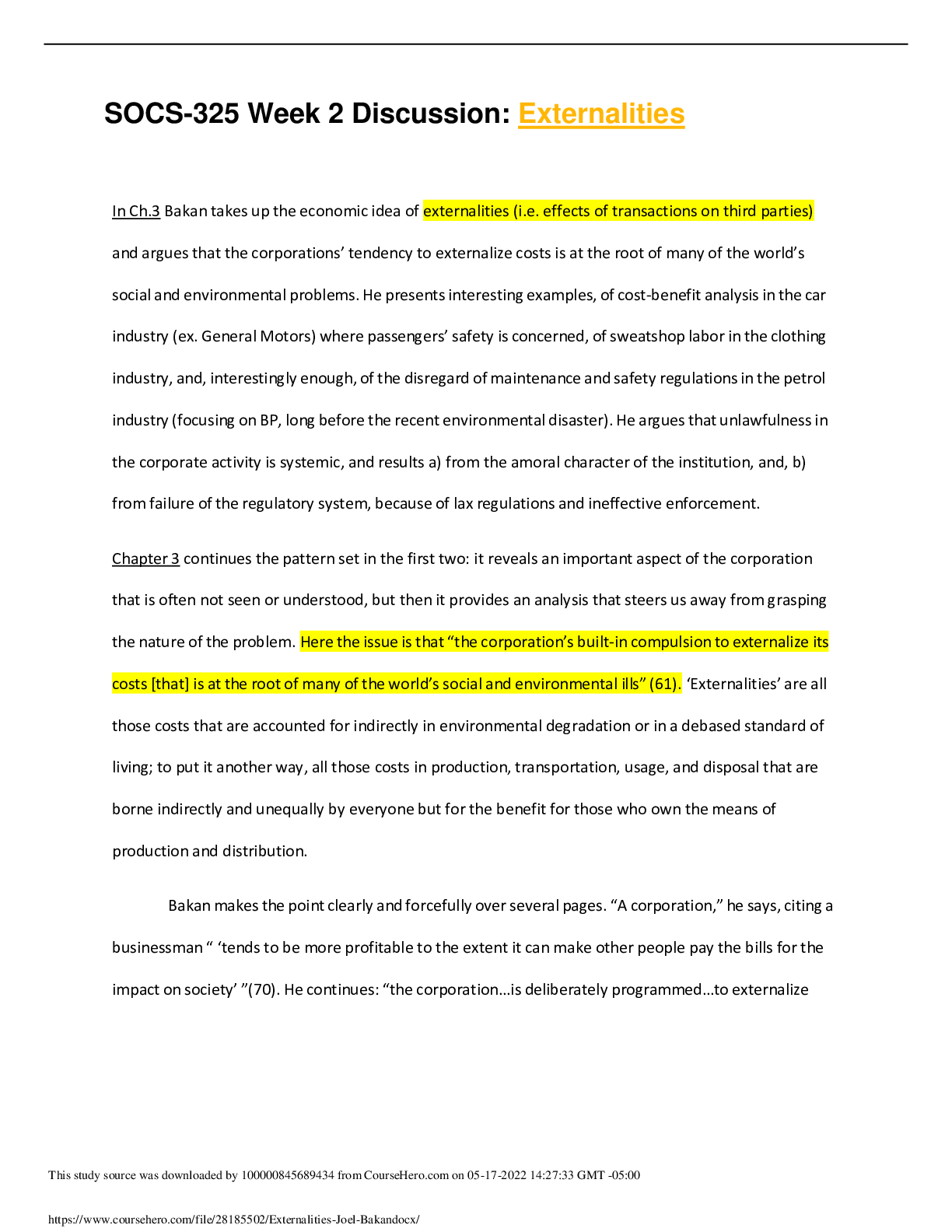
Reviews( 0 )
Document information
Connected school, study & course
About the document
Uploaded On
May 17, 2022
Number of pages
3
Written in
Additional information
This document has been written for:
Uploaded
May 17, 2022
Downloads
0
Views
62


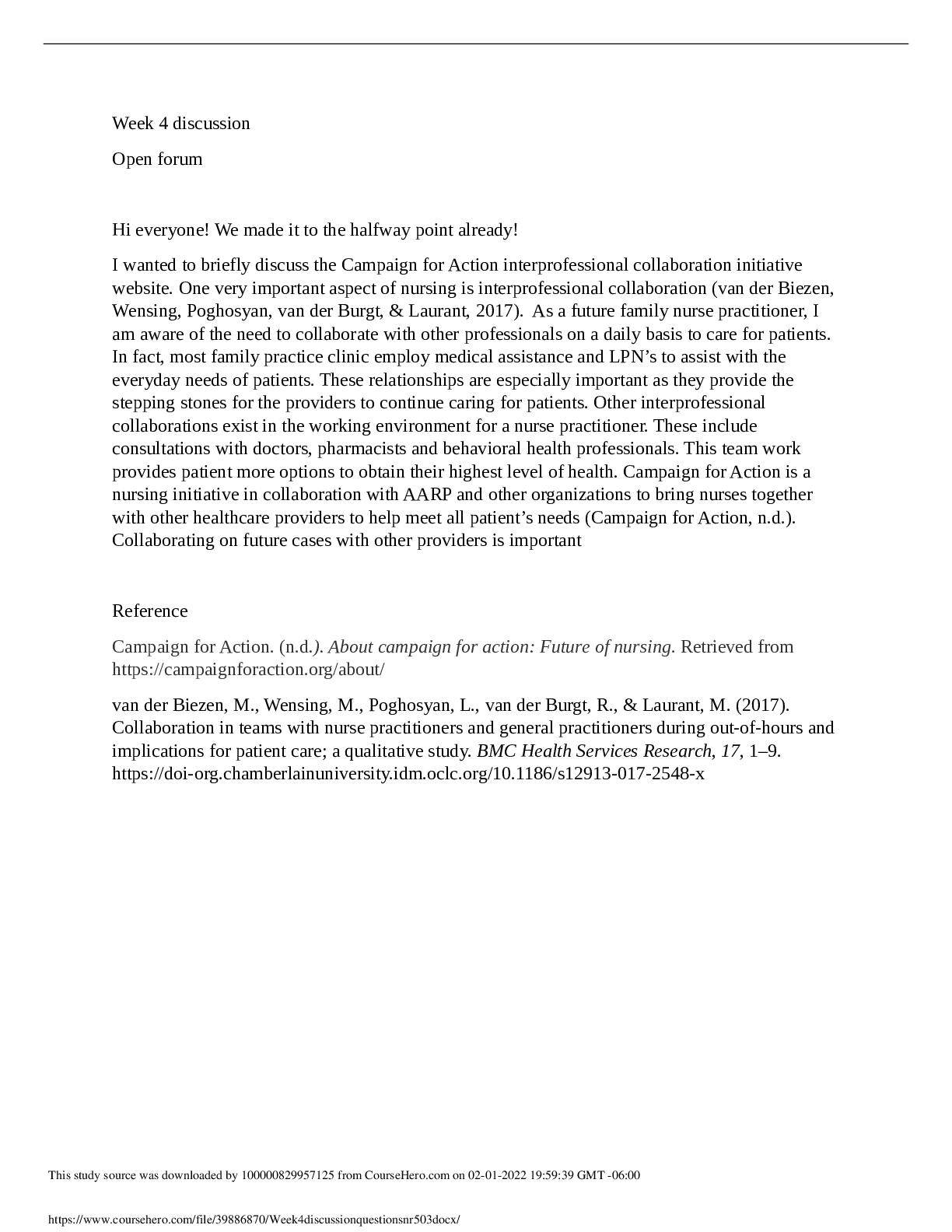
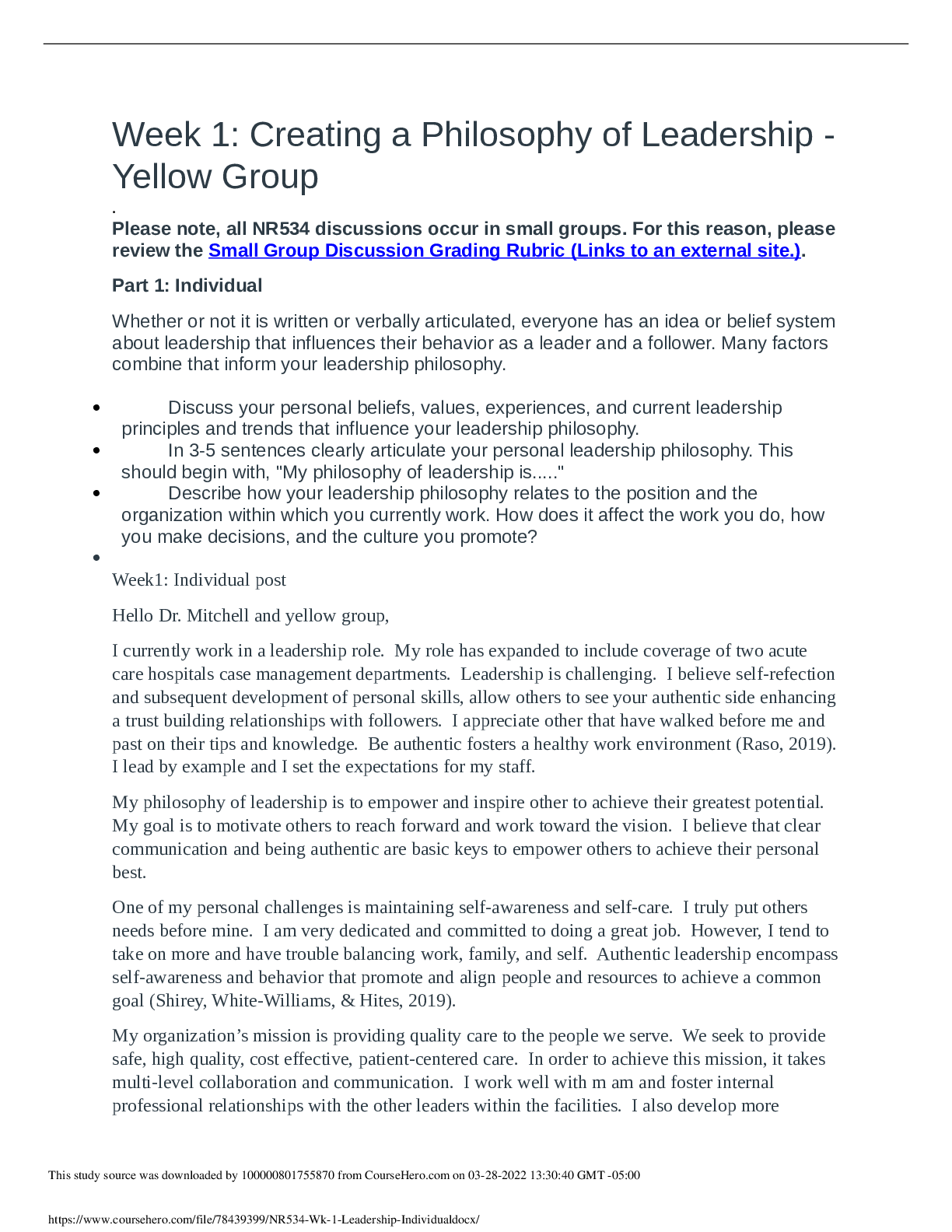
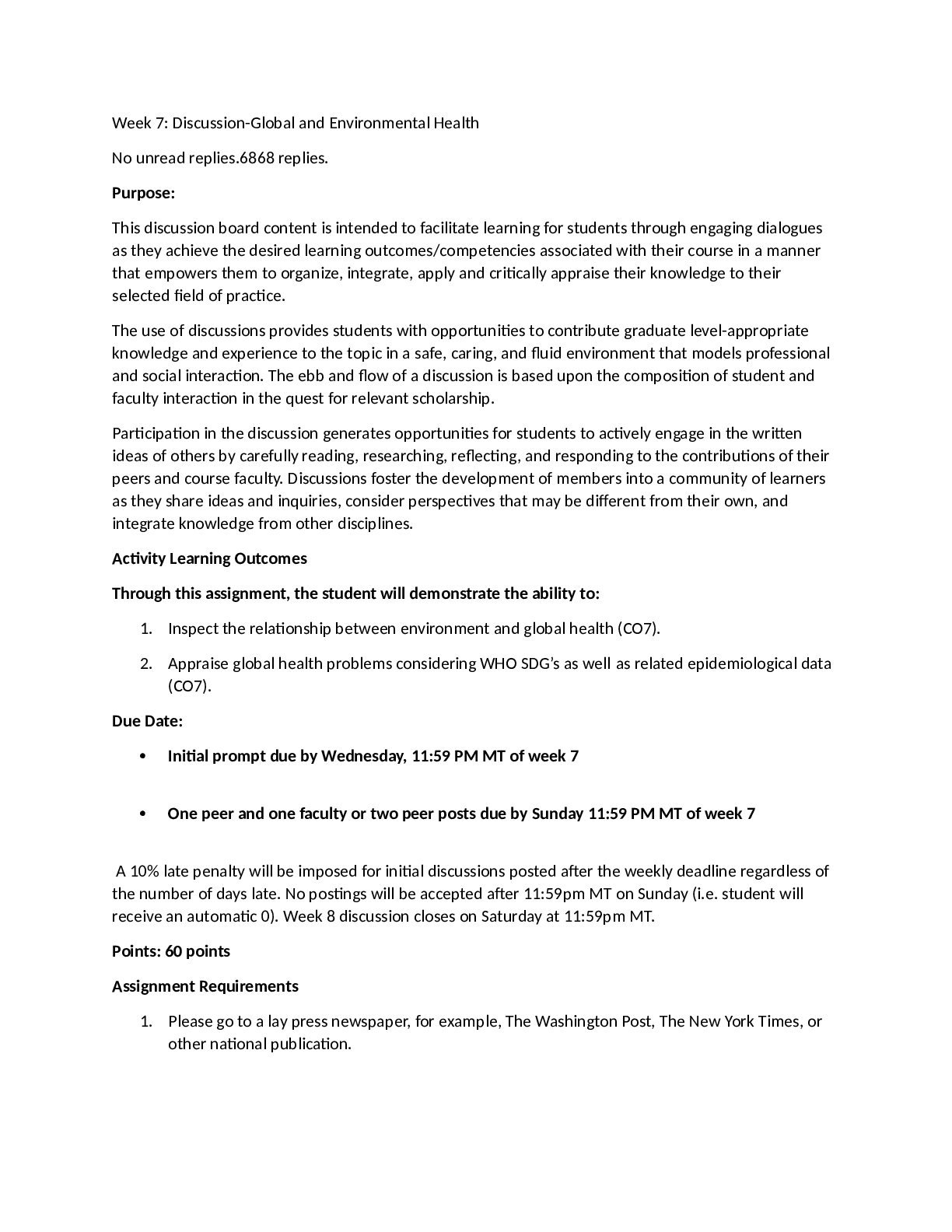


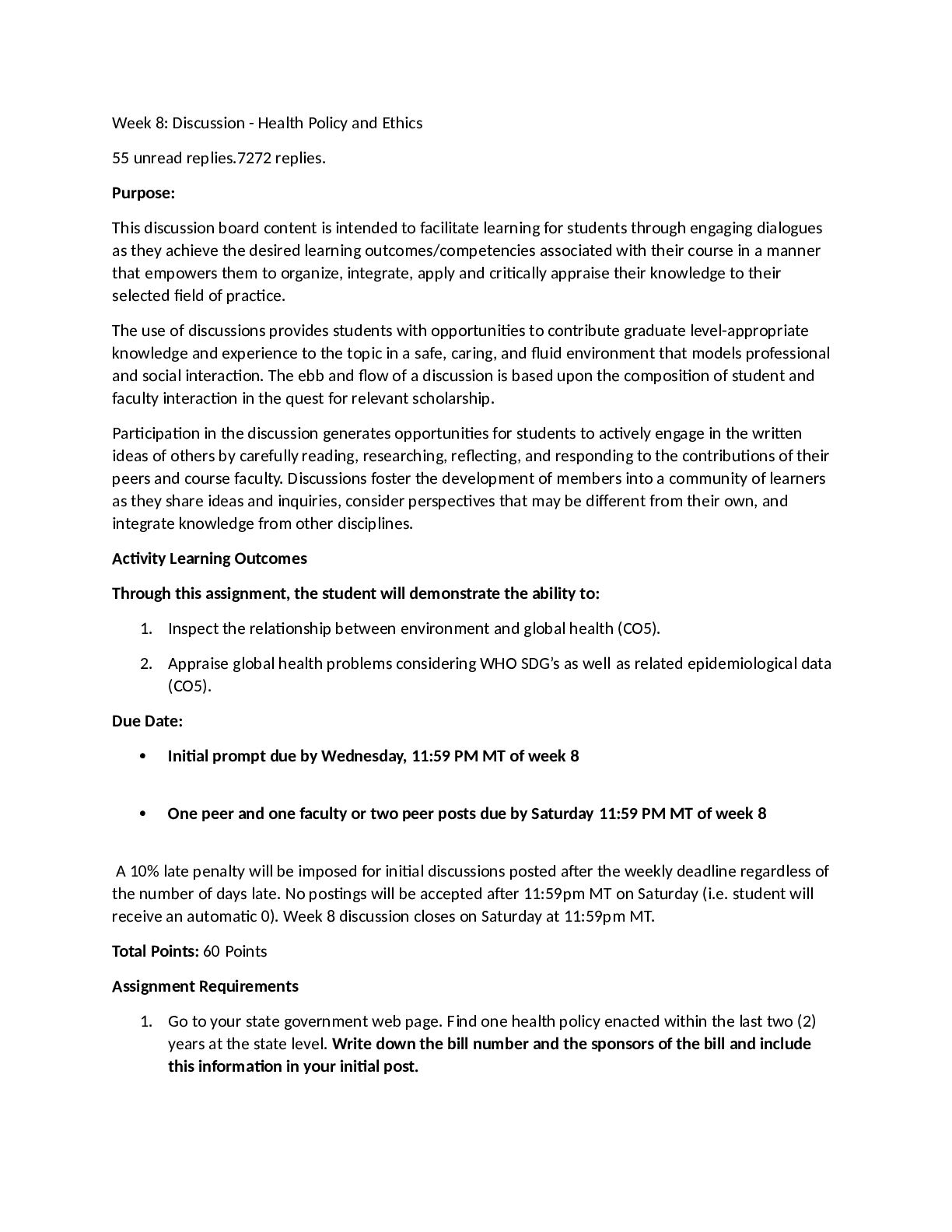
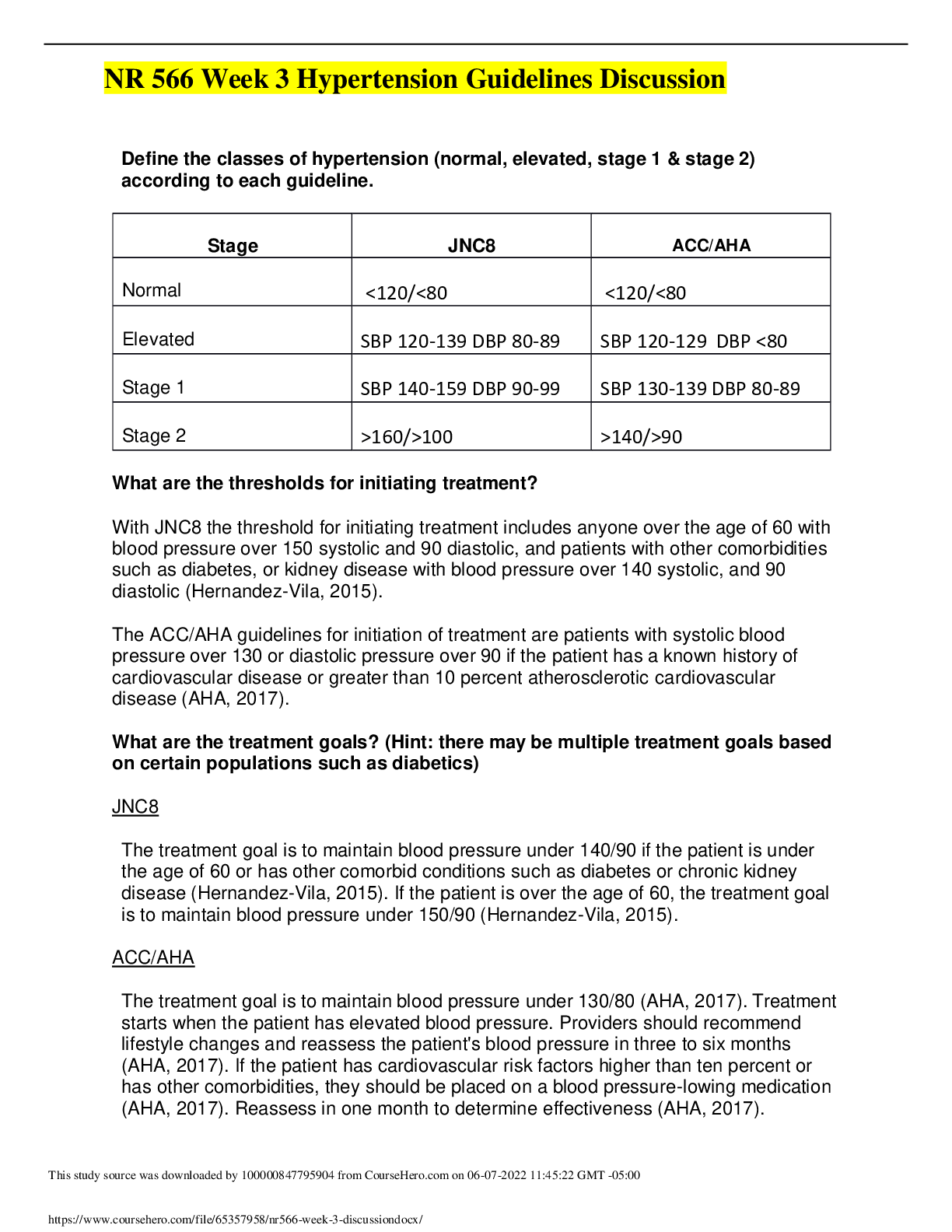
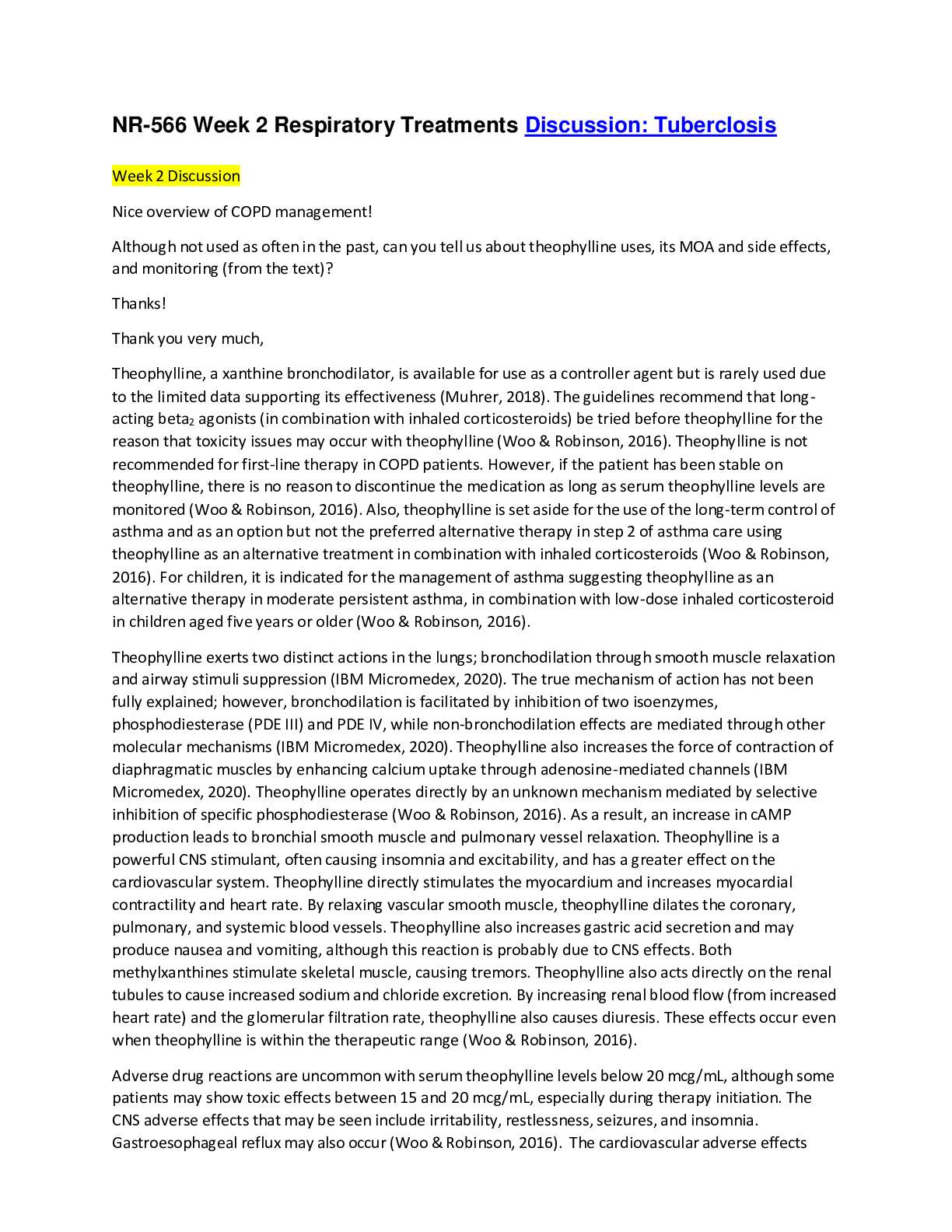
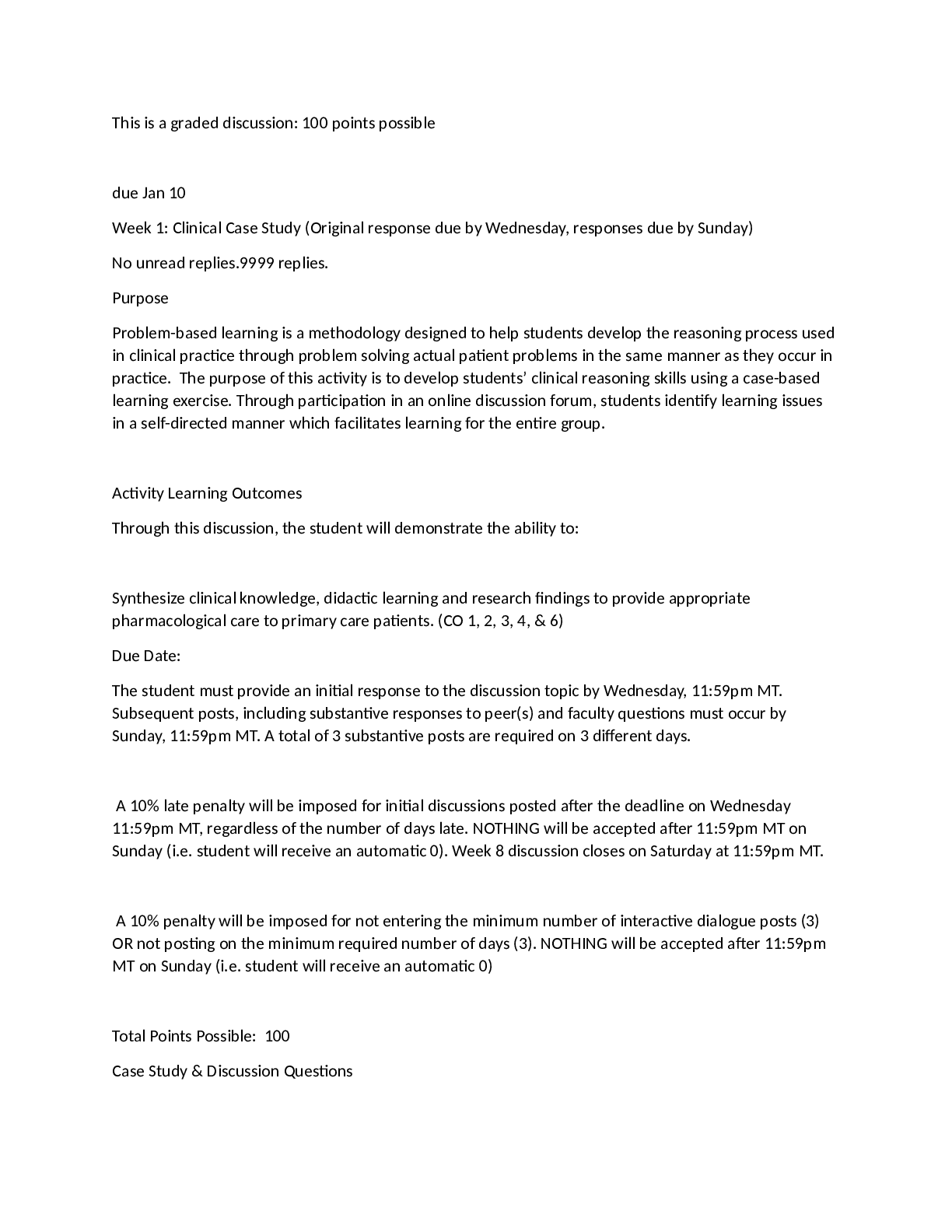
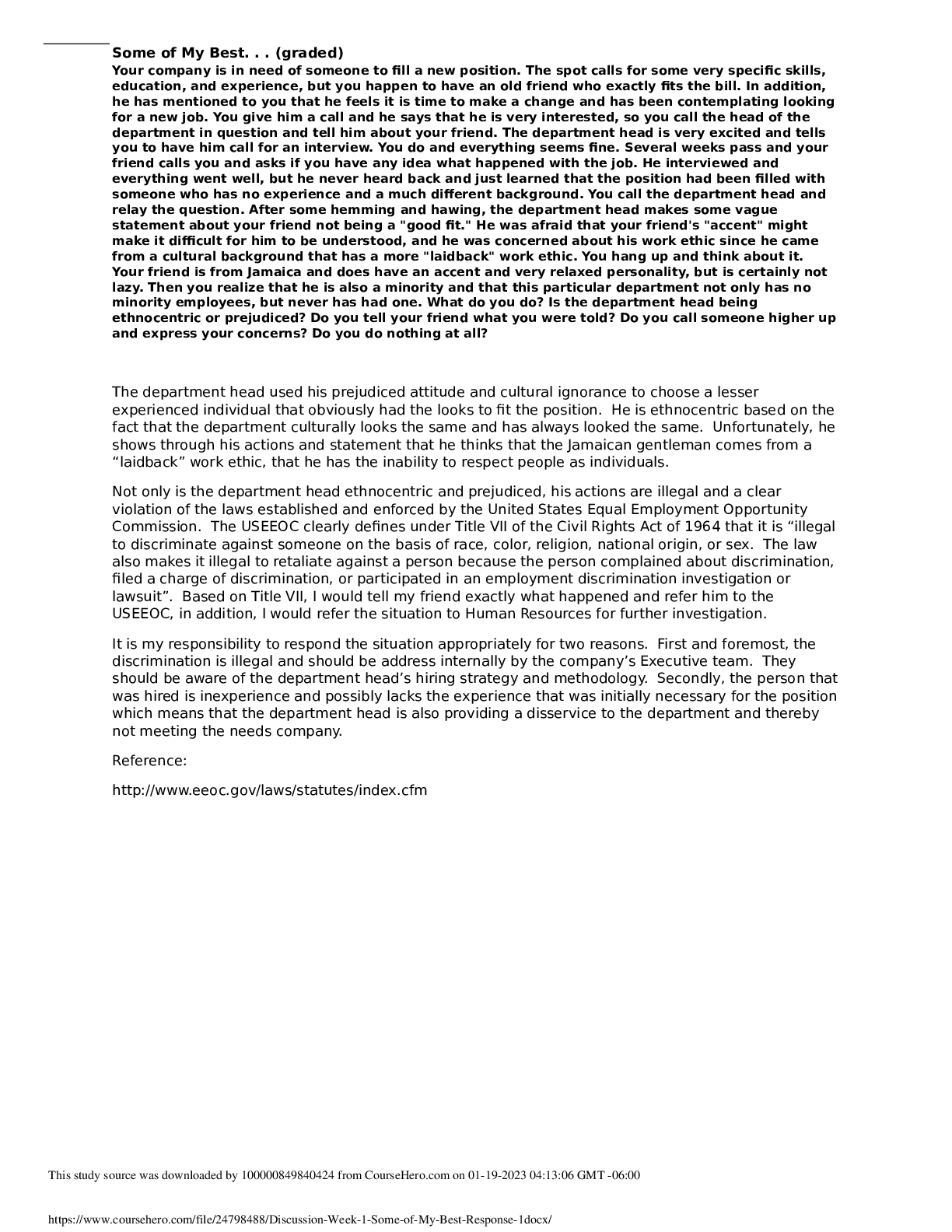

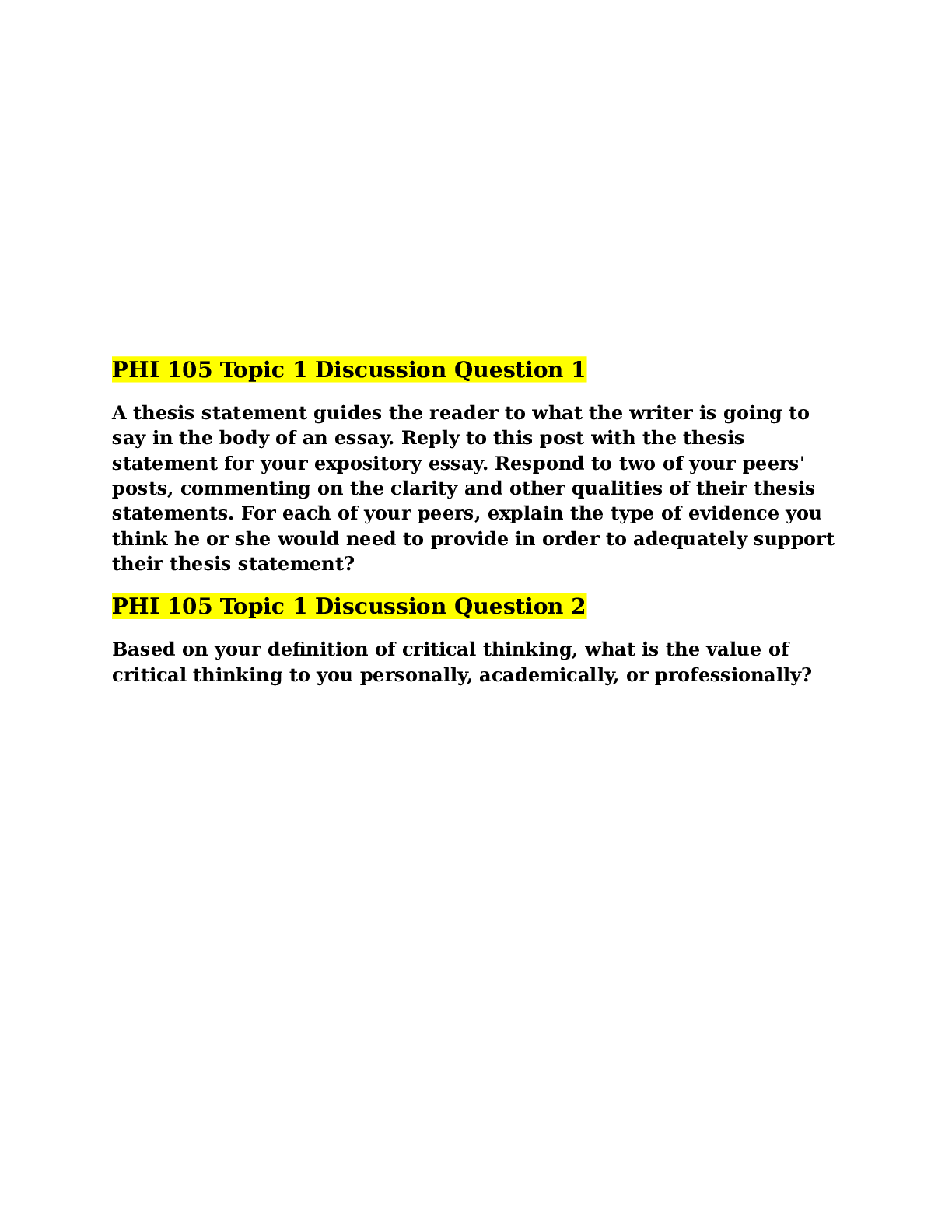
.png)
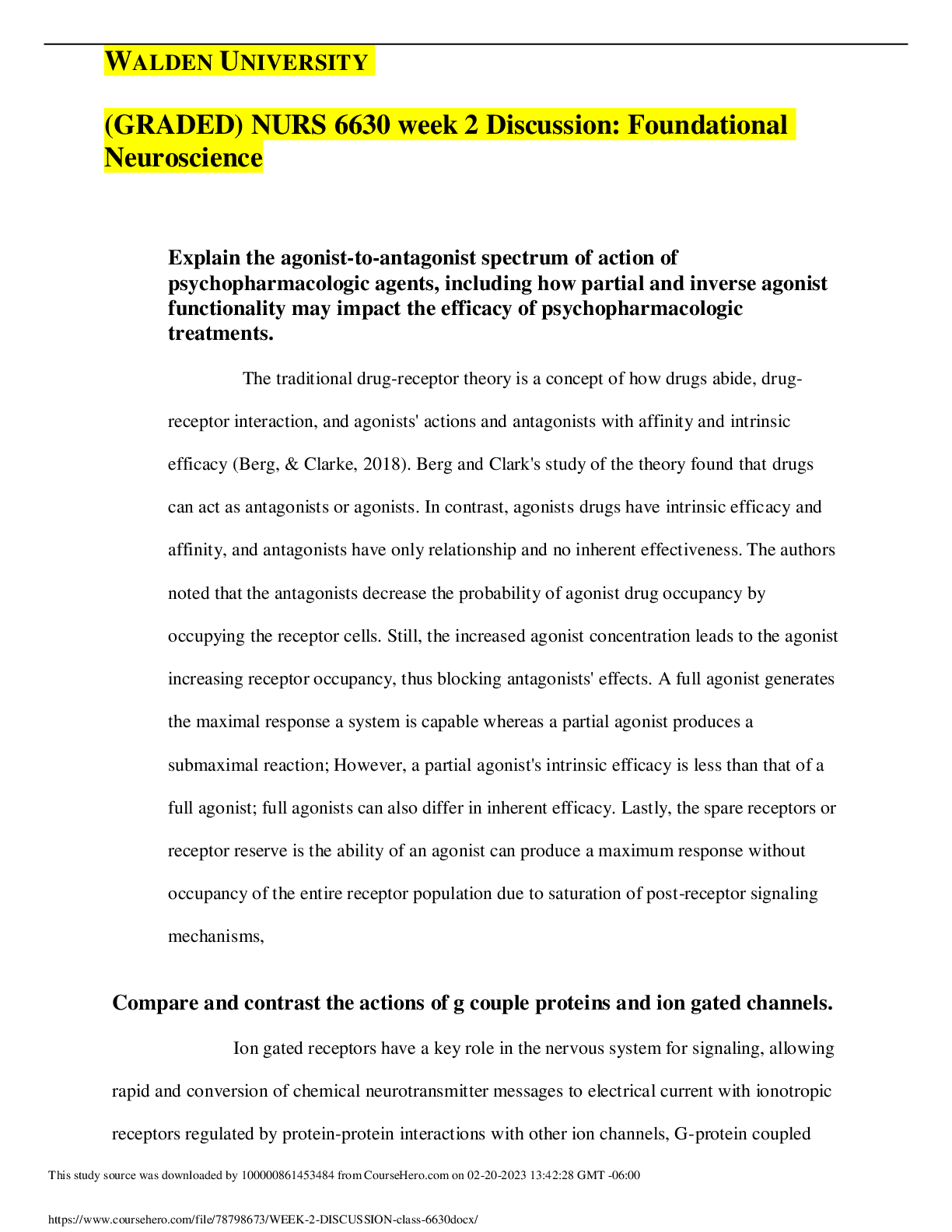
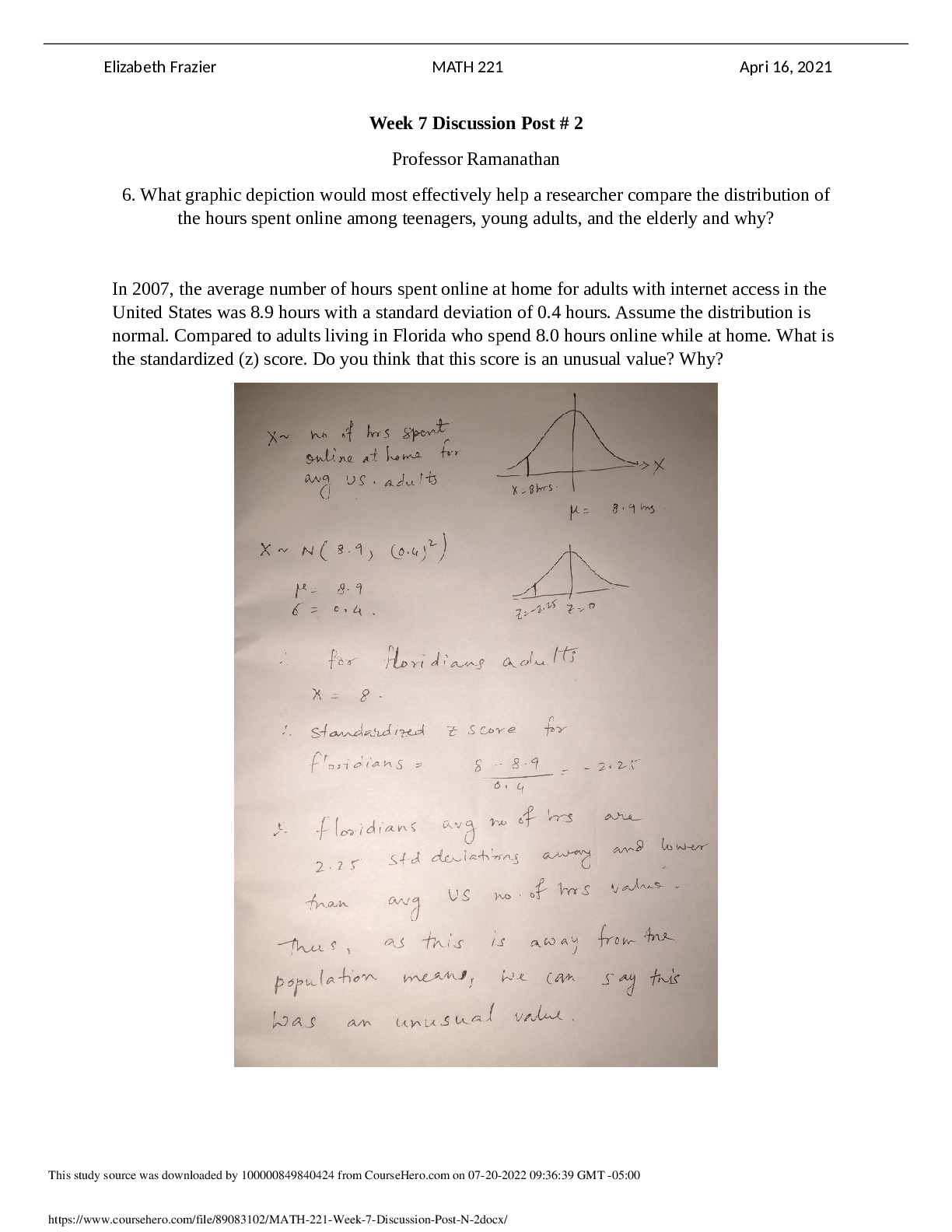
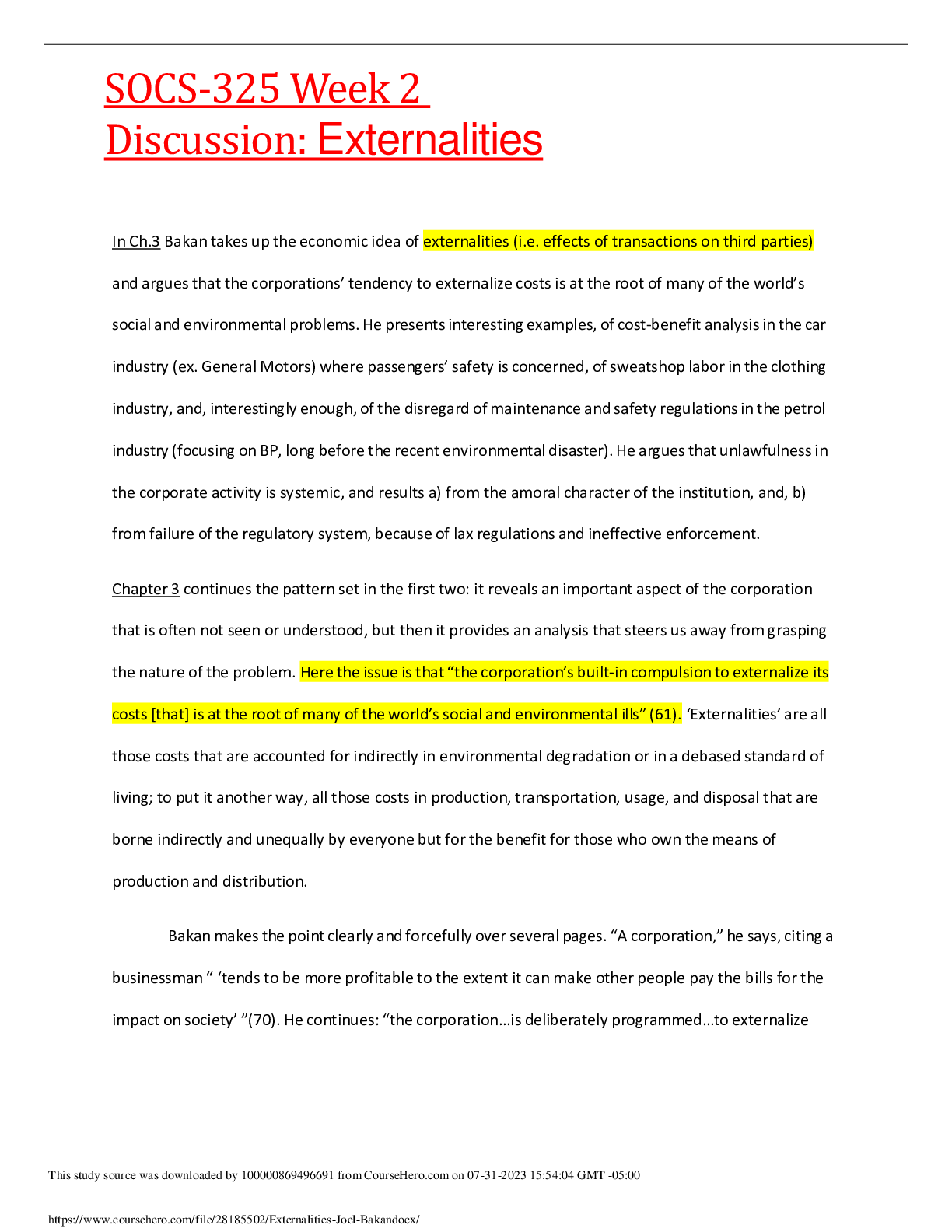
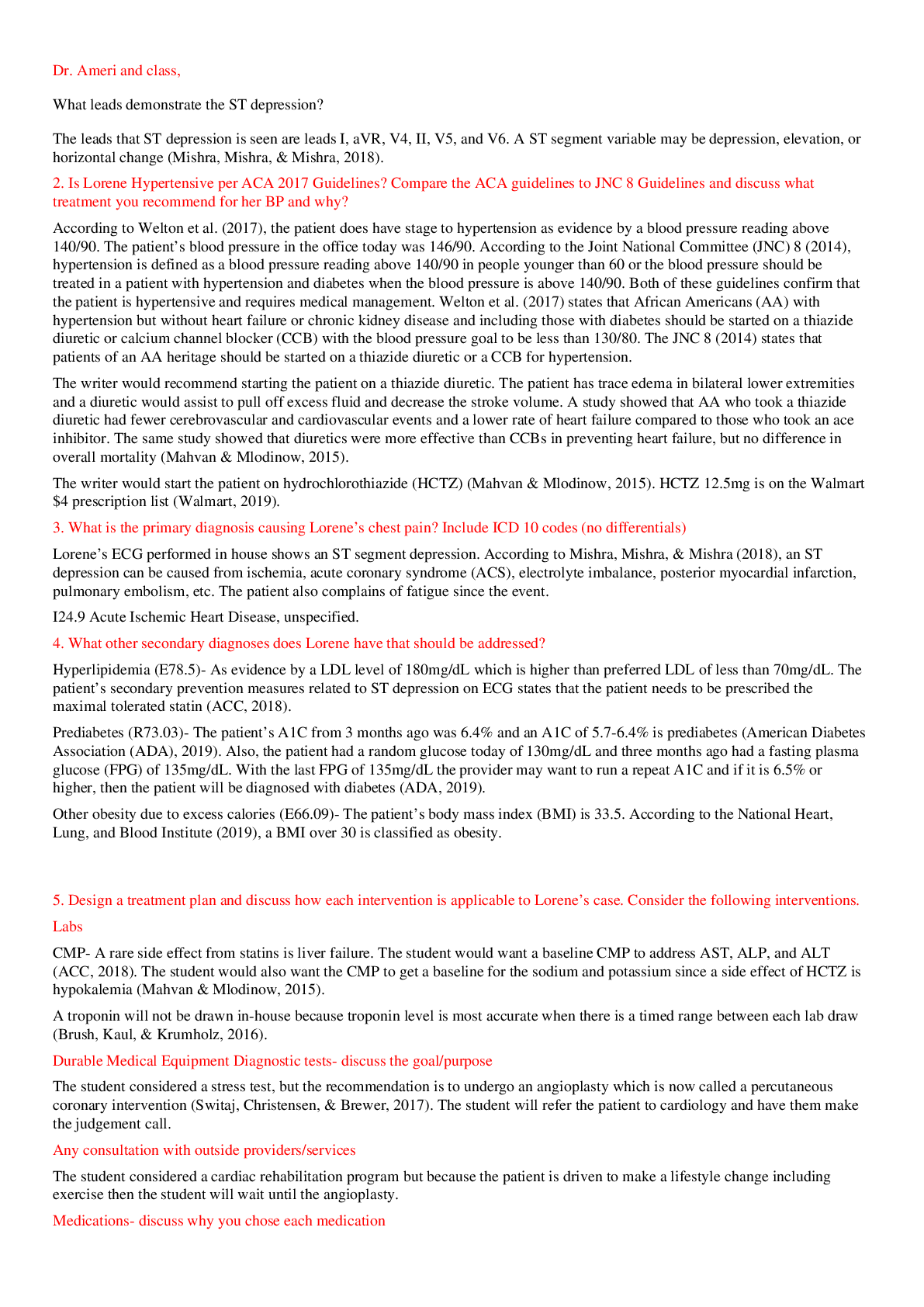

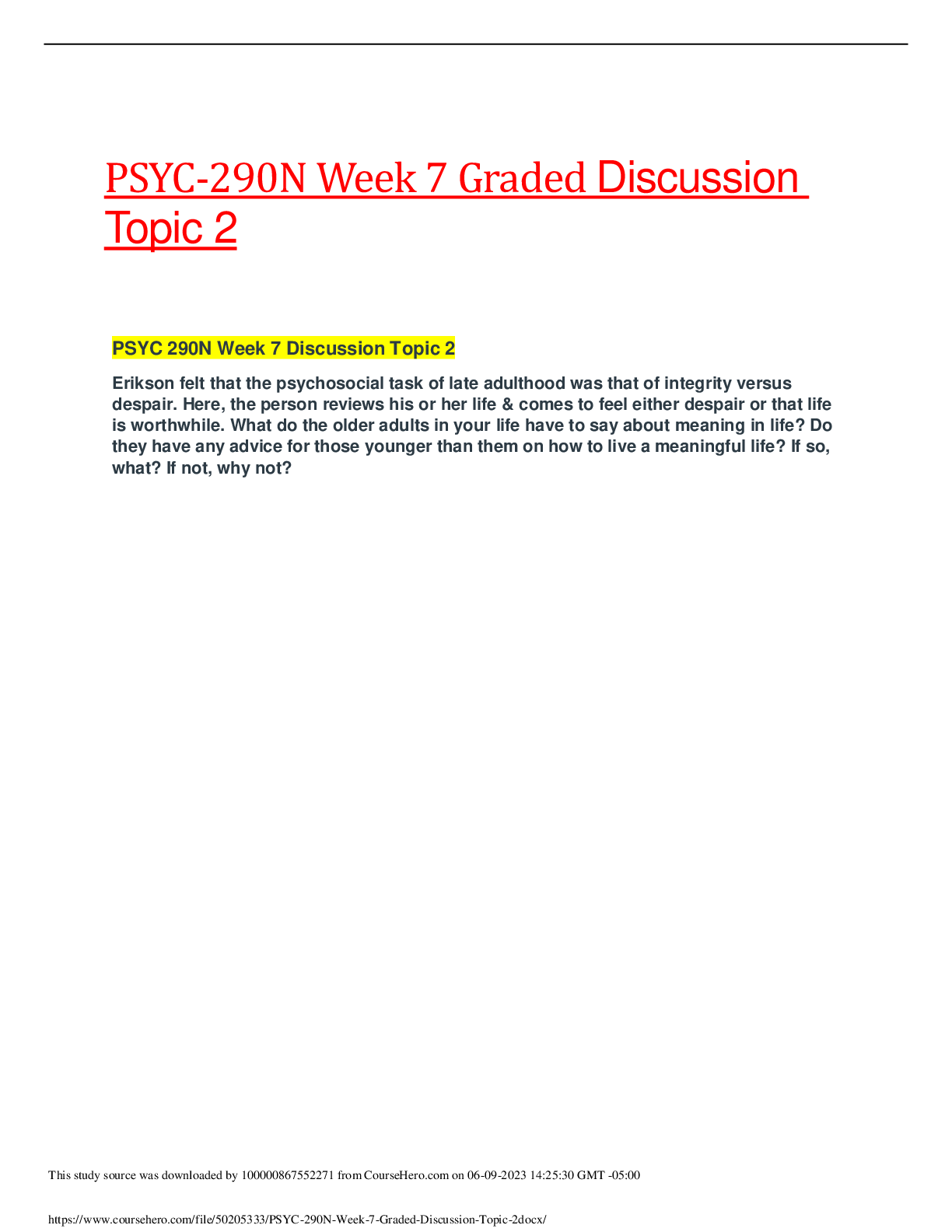
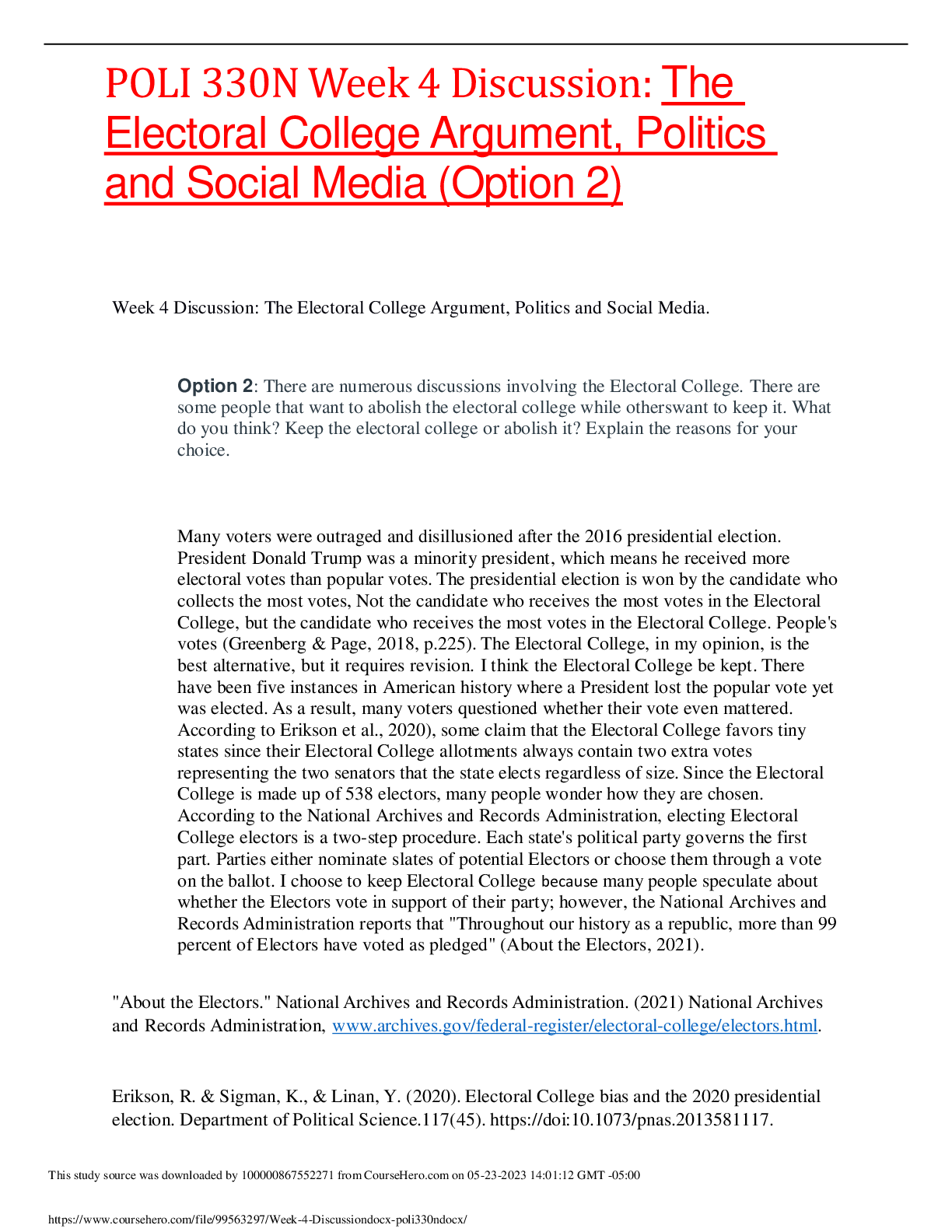
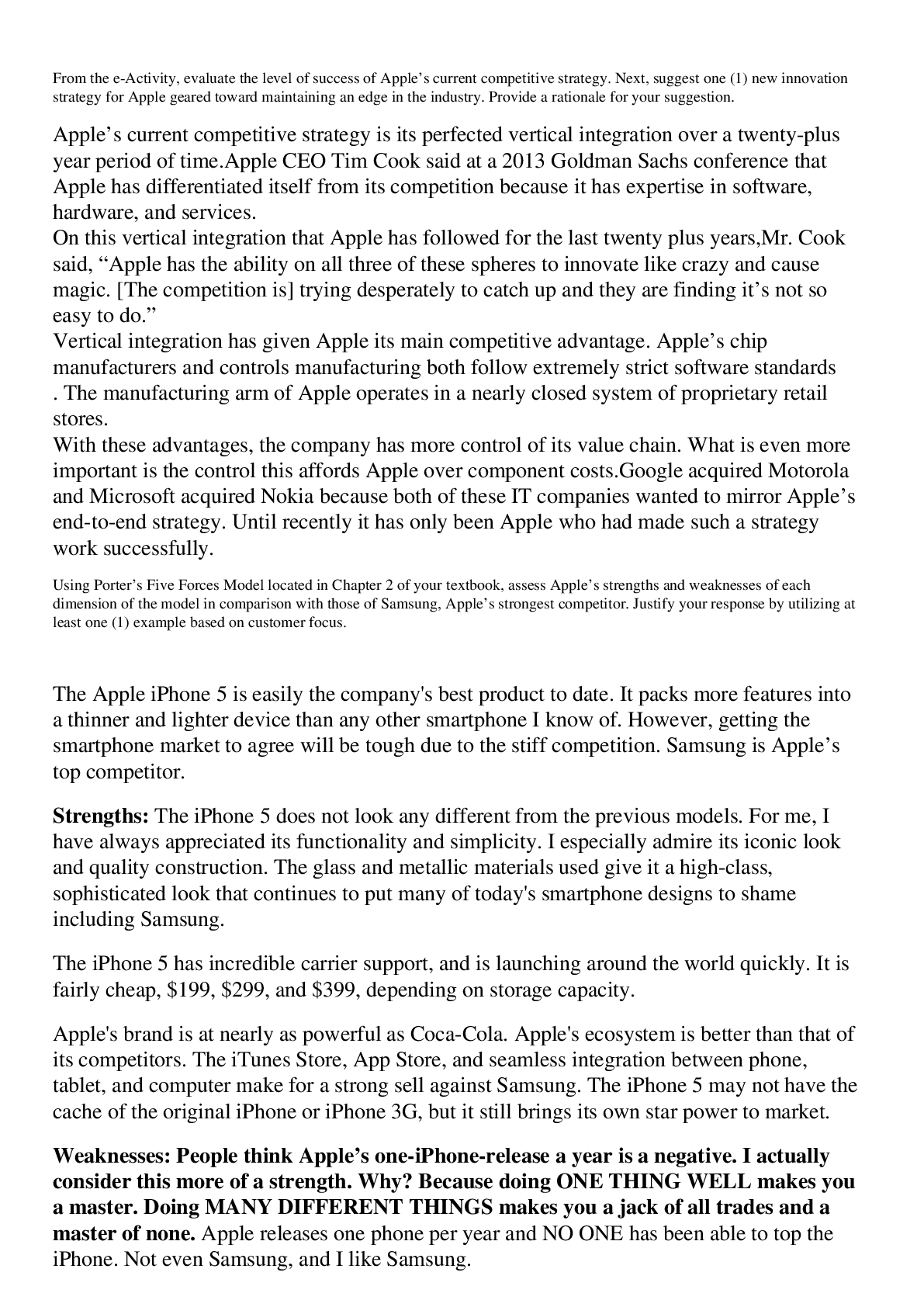
Growth and developmental patterns of toddlers.png)

